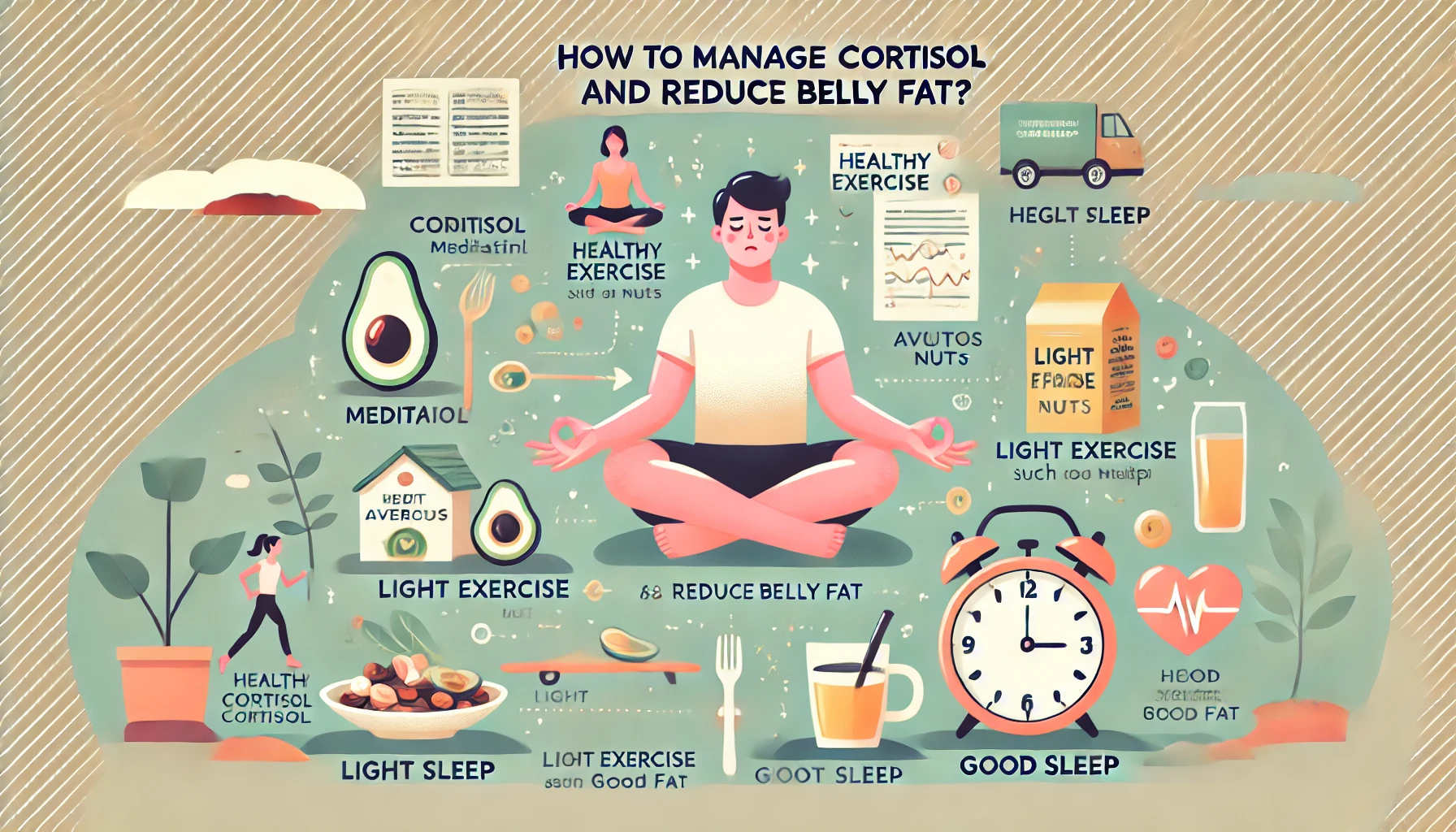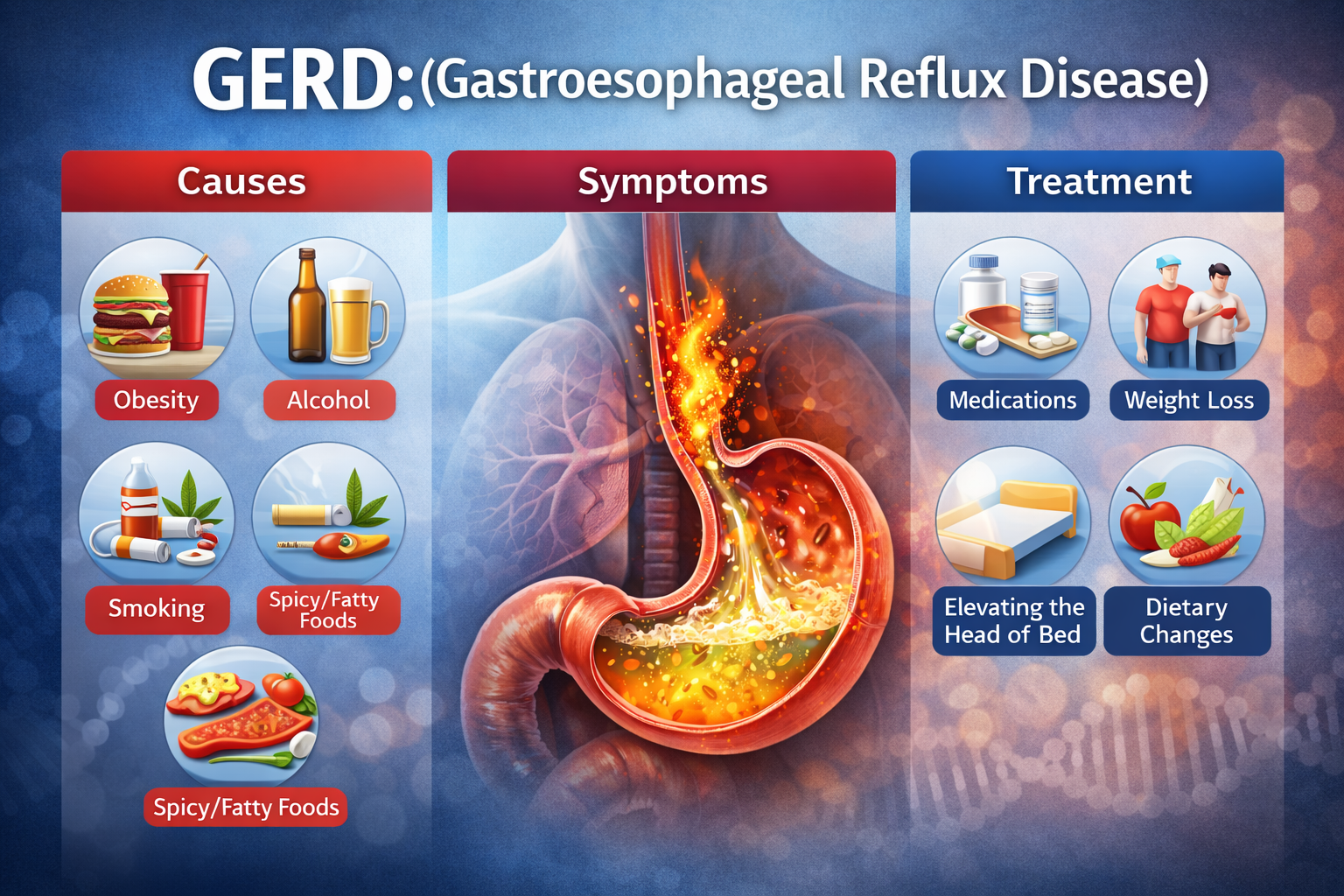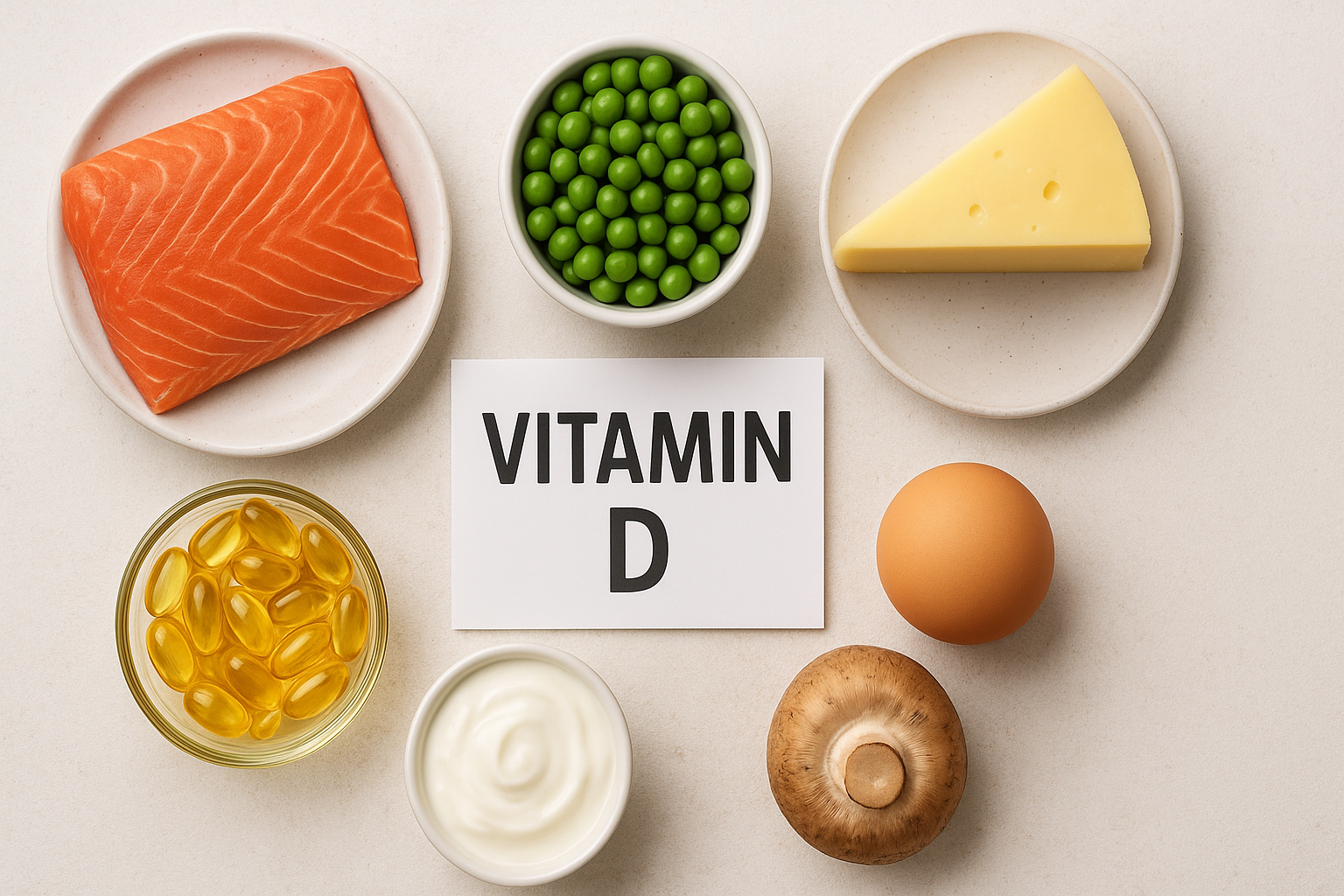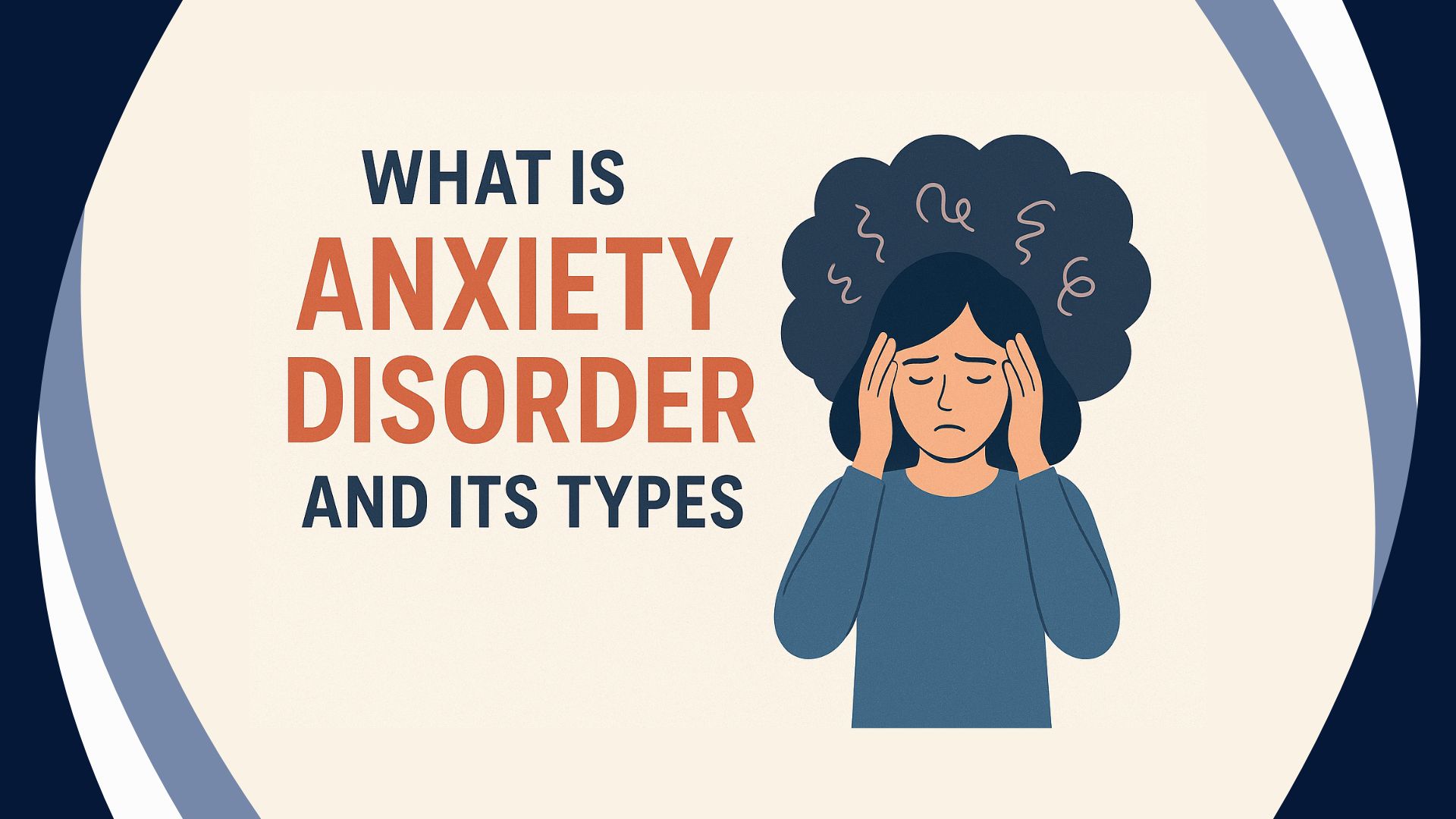How to Manage Cortisol levels and Reduce Belly Fat?

The relationship between increased cortisol levels and belly fat accumulation involves complex physiological processes. Here’s how elevated cortisol contributes to increased abdominal fat:
- Stress Management: Practice relaxation techniques such as mindfulness, meditation, yoga, or deep breathing exercises.
- Healthy Diet: Focus on whole foods, avoid excessive sugar and refined carbohydrates, and prioritise lean proteins and healthy fats.
- Regular Exercise: Aerobic activity and strength training can help reduce cortisol levels and improve body composition.
- Sleep: Ensure adequate and quality sleep, as poor sleep increases cortisol production.
- Reduce Stimulants: Limit caffeine and other stimulants, which can elevate cortisol levels in some people.
1. Cortisol Promotes Fat Storage, Especially Visceral Fat
- Fat Distribution: Elevated cortisol shifts fat storage to the visceral fat depot, which is located deep in the abdomen around vital organs. This is due to the higher density of cortisol receptors in abdominal fat cells compared to other areas of the body.
- Impact of Visceral Fat: Visceral fat is metabolically active and strongly linked to health risks, such as insulin resistance and inflammation.
2. Increased Appetite and Food Cravings
- Stress-Induced Eating: Chronic stress and elevated cortisol levels increase appetite, particularly for high-calorie, sugary, and fatty foods, as cortisol stimulates the release of neuropeptide Y and ghrelin (hunger hormones).
- Excess Calorie Intake: Overeating these foods contributes to fat accumulation, with a disproportionate amount being stored in the abdominal region.
3. Insulin Resistance
- Cortisol and Glucose Regulation: Cortisol increases blood sugar levels by stimulating Gluconeogenesis (glucose production) and reducing glucose uptake by cells. Chronic high cortisol can lead to insulin resistance.
- Belly Fat Storage: Insulin resistance encourages the storage of excess glucose as fat, particularly in the abdominal area, exacerbating belly fat accumulation.
4. Reduced Fat Breakdown (Lipolysis)
- Cortisol and Fat Metabolism: Elevated cortisol suppresses the body’s ability to break down fat (lipolysis), especially in the abdominal area, leading to fat storage rather than fat burning.
5. Muscle Loss and Slower Metabolism
- Protein Catabolism: Cortisol breaks down muscle protein into amino acids, which are then used for energy during stress.
- Lower Basal Metabolic Rate: Muscle loss reduces the body’s resting metabolic rate, making it easier to gain fat, particularly in the abdomen.
6. Sleep Disruption
- Cortisol and Poor Sleep: High cortisol levels, particularly at night, disrupt sleep. Poor sleep quality is associated with increased hunger and cravings, as well as higher cortisol levels the next day, creating a vicious cycle.
Key Processes Linking Cortisol to Belly Fat
| Cortisol Effect | Outcome |
|---|---|
| Shifts fat storage to visceral area | Accumulation of belly fat |
| Increases appetite and cravings | Overeating and calorie surplus |
| Promotes insulin resistance | Glucose stored as fat, especially in belly |
| Reduces fat breakdown | More fat stored, less burned |
| Causes muscle loss | Slower metabolism, more fat storage |
How to Reduce Cortisol-Driven Belly Fat?
- Stress Management: Use mindfulness, meditation, or yoga to lower cortisol levels.
- Regular Exercise: Focus on moderate-intensity aerobic and strength training to reduce stress and visceral fat.
- Balanced Diet: Avoid processed foods and focus on whole foods with a balanced macronutrient profile.
- Sleep Quality: Prioritize good sleep hygiene to regulate cortisol levels.
- Limit Caffeine and Alcohol: These can elevate cortisol levels when consumed in excess.
- Social Connection: Strong social support helps reduce stress and cortisol levels.
Managing cortisol effectively can mitigate its role in belly fat accumulation and improve overall health.







